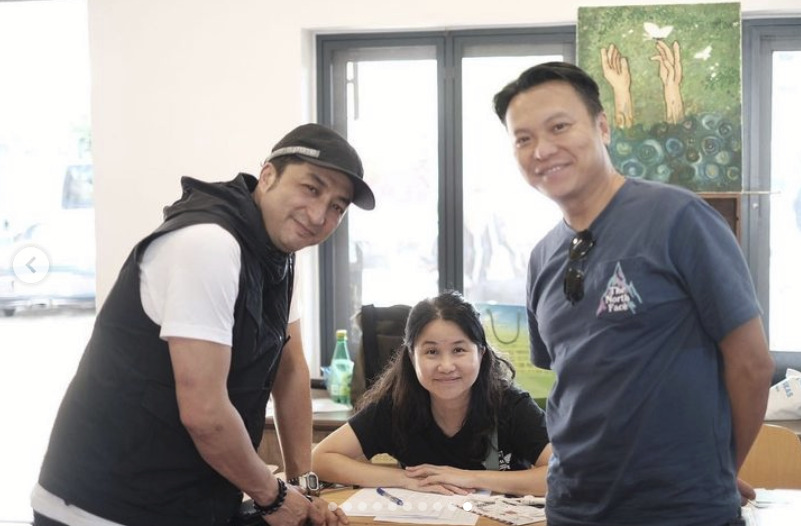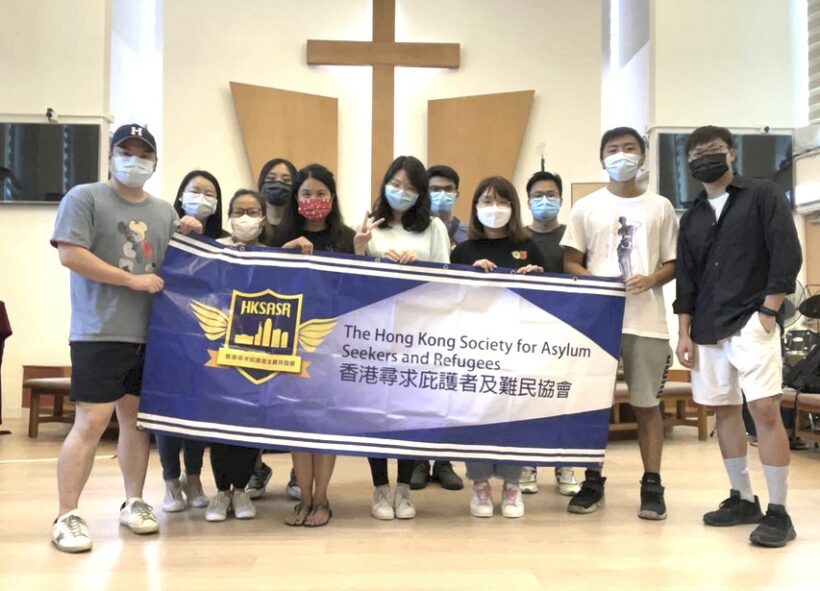In order to mobilize political will and resources for refugees, international days like the World Refugee Day on June 20th call attention to the challenges of those fleeing conflict and persecution in their home countries. While people all over the world are shining light on the needs, rights and dreams of refugees on that particular day, it is worth asking how far every single day may not in fact be a World Refugee Day itself. Isabella Ng, co-founder of the volunteer initiative The Hong Kong Society for Asylum-Seekers and Refugees (HKSASR) which supports refugees in Hong Kong, provides interesting insights into their lives and daily struggles in one of the most developed cities worldwide.
Pressenza: Dear Ms Ng, as a volunteer for HKSASR you are working with very diverse individuals daily. Where do your beneficiaries generally come from?
Isabella Ng: There is no such thing such as a typical refugee profile in Hong Kong. Countries in Southeast Asia including Indonesia and the Philippines represent the most common places of origin. However, we have a broad range of nationalities including African countries. Furthermore, many of them are of mixed origin because their parents have different nationalities.
PZ: What are the main drivers to come to Hong Kong?
IN: The answer to this question heavily depends on the country of origin, or the gender. Besides poverty due to political reasons, particularly individuals from African countries and Pakistan, for instance, arrive because of political instability in their home country. Furthermore, many women are running away from domestic violence or societal expectations in their home countries. This particularly applies to qualified women from African nations and Arab countries such as the United Arab Emirates.
PZ: What problems do they mostly face?
IN: Probably the most severe issue is that they are not legally allowed to work. Refugees may be entitled to receive government subsidies but the amount provided is far from sufficient to meet one’s needs in one of the most expensive cities in the world. For instance, many families struggle to find suitable accommodation, pay for school books or to afford something as basic as a school uniform for their children. Without the right to work, they have to rely on churches or charitable organizations to support them for their daily needs.
PZ: What implications does this have for other areas of life?
IN: According to my research, the most severe implications of this economic destitution are linked to a refugee’s mental health, because they worry a lot about making ends meet. However, there is more to this particularly if one considers the long-term implications. The limited financial support provided by the government does not allow them to choose a healthy lifestyle which additionally negatively affects their mental health in the long-run. For instance, the fact that they have to live in tiny subdivided flats or have less money for social activities to build healthy relationships may render them depressed, more vulnerable and in certain cases more likely to commit crimes.
PZ: What other aspects impact their mental health? What do your beneficiaries worry about the most?
IN: After money, the second most crucial issue which negatively impacts the refugee’s mental health is linked to the stress which is caused by the fear of being sent back to their country of origin. This not only applies because many of them have been living in Hong Kong for a number of years and established their own lives here but also because the families might end up being separated. The legal cases of many families are not combined because the parents come from different countries. Consequently, for a family with an Indian father and an Indonesian mother, for instance, it is very likely that the parents would go back to different countries in the case they are sent back home.

HKSASR in action: Isabella Ng and HKSASR partners Sadiq Khan of Chrisly Cafe and Martin Yeung (Credit: HKSASR)
PZ: HKSASR’s mission is to support those people. What approach does your organization choose to work on those problems?
IN: We basically try to support in every possible way we can with what we have where we are right now: Our small team of volunteers provides legal support and help to liaise with officers but also assists with rather basic needs including providing food, translating Cantonese documents and talking to doctors on a refugee’s behalf. In case we encounter any problems we are not able to sort out, we seek to direct the beneficiaries to the respective contact person. One could say we function as some sort of free of charge refugee center without actually being one. Everything is organized from my home and run by a few committed volunteers who take the initiative and often also support with their own salaries, for instance. As you can see, we are not the typical NGO or very organized but focusing on every single case individually. In fact, we highly value building relationships and fostering trust towards our beneficiaries beyond the actual case.
PZ: How many beneficiaries do you support?
IN: We have around 85 families – about 250 individuals – who come to us regularly and receive food, for instance. But, if you count all the non-regular beneficiaries who use our services the number rises to about 1000 refugees.
PZ: You have been working with refugees for the last eight years but your background as a researcher has not directly prepared you for what you are doing now. How did you end up working hands-on?
IN: I would say it was not me who made that choice – it was God. When I visited a village in Hong Kong during a research project on indigenous women, I stumbled upon a group of people that I had not seen there before: people with different skin color, different cultural backgrounds, people speaking a completely different language. I was surprised because villages in Hong Kong are notoriously exclusive. As I later found out, those people were refugees who had decided to move to this remote place because the rent there was comparatively cheap. That aroused my interest and I started talking with them to get to know them better. Because I could speak both English as well as Cantonese, I started helping them by talking with international service officers or arranging doctor’s appointments, for instance. Soon other volunteers within my network joined and that is basically how it all started. In the beginning, setting up an NGO felt overwhelming for me. But, I could count on my network a lot and we learnt by just getting started and doing it.
PZ: What has been your most memorable experience?
IN: Working with refugees has allowed me to experience other aspects, other realities, within our society which I was completely numb to before. For instance, I remember one incident in 2015 when Hong Kong was experiencing a very cold winter and one of the mothers we worked with in Sham Shui Po was reaching out to me in order to ask for an additional mattress. When we went there to bring her one, it was so cold in her flat that we had to turn on the hot water in order to warm up the flat through the hot steam. That was a memory which stuck in my head because it showed me how some refugees struggle in such an affluent society – while many are not even aware of their needs.
Thank you very much for sharing such a meaningful experience! It must have been an eye-opener for the hardships many refugees are facing every single day while others may not be aware of them at all. In fact, it may have been a kind reminder that World Refugee Day is every day. Best of luck for your projects!






